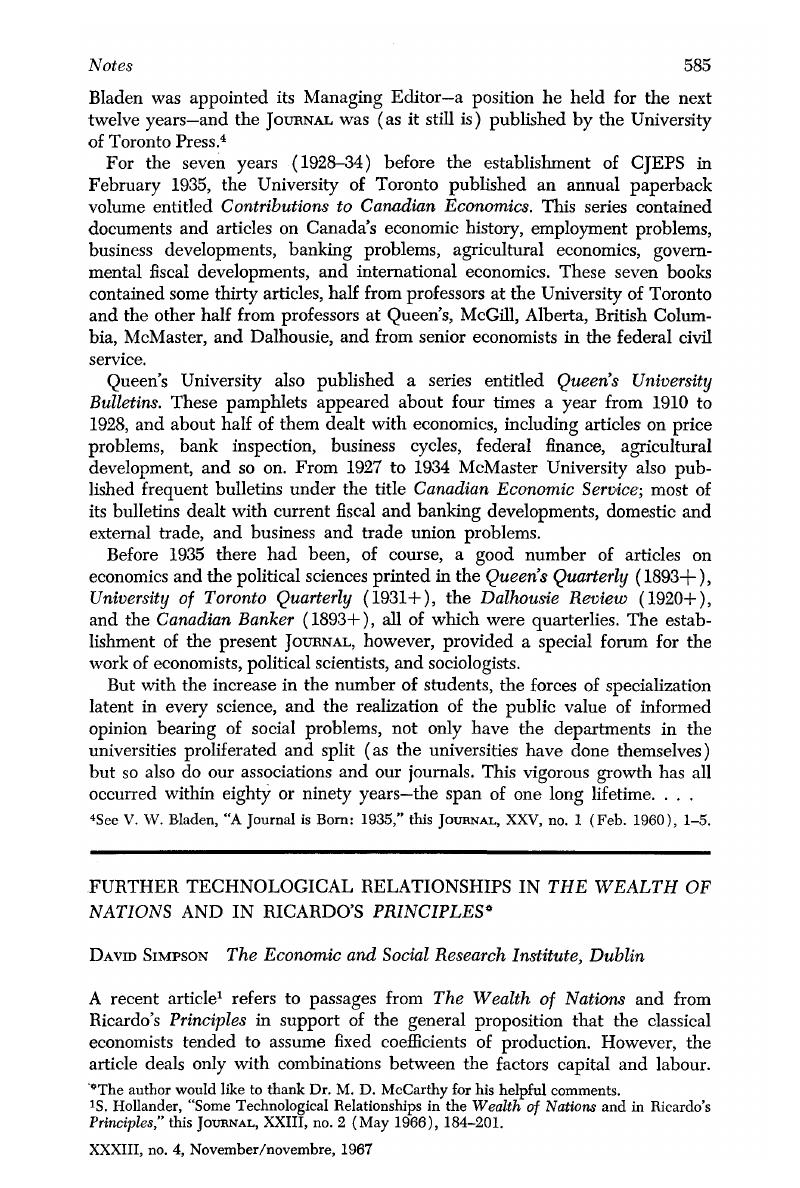No CrossRef data available.
Published online by Cambridge University Press: 07 November 2014

The author would like to thank Dr. M. D. McCarthy for his helpful comments.
1 Hollander, S., “Some Technological Relationships in the Wealth of Nations and in Ricardo's Principles,” this Journal, XXIII, no. 2 (05 1966), 184–201.Google Scholar
2 Mill, J. S., Principles (Ashley, ed.) Bk. III, chap, XVII, 579–80.Google Scholar
3 Williams, John H., “The Theory of International Trade Reconsidered” Economic Journal (06 1929)CrossRefGoogle Scholar, and “International Trade Theory and Policy—Some Current Issues” American Economic Review, Papers and Proceedings (May 1951).
4 Myint, H., “The Classical Theory of International Trade and the Underdeveloped Countries” Economic Journal (06 1958).CrossRefGoogle Scholar
5 To this passage in his edition, Cannan adds the note: “But why may not the labour be diverted to the production of “something for which there is a demand at home’? The ‘corn, woollens, and hardware’ … perhaps suggest that it is supposed the country had certain physical characteristics which compel its inhabitants to produce particular commodities.”
6 “The Classical Theory of International Trade and the Undeveloped Countries,” 322.
7 Ricardo, David: Principles of Political Economy and Taxation (London 1817), chap. 2.Google Scholar The nature of Ricardo's production function was suggested to me by Professor Wassily Leontief. Professor Leontief bears no responsibility for the way in which the point is developed.
8 See, for example, Allen, R. G. D., Mathematical Analysis for Economists (London, 1956), 289, Fig. 80.Google Scholar
9 “International Trade Theory and Policy—Some Current Issues,” 427.